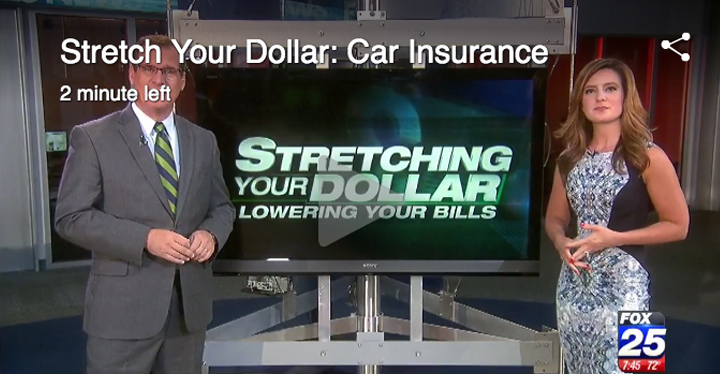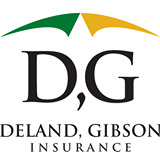Tom Skelly, Vice President of Sales & Strategy here at Deland, Gibson, was featured this week on FOX25’s “Stretching Your Dollar” segment. This week the focus was on Car Insurance, and Skelly offers multiple tips on how your lifestyle, actions, and coverage adjustments could save you money and lower your monthly bills.
Watch the Video here:
Or click here to watch the video on Fox25 Boston.
Stretching Your Dollar: Car Insurance
Excerpt from FOX25 WFXT article/video:
According to Nerd Wallet—drivers in Massachusetts will spend 11 hundred dollars a year for car insurance. Factors like age and previous claims can determine your rate but there are some other choices that could drop your current rate even.
Tom Skelly is VP of sales and strategy at Deland, Gibson Insurance Associates. He says you should call your independent agent every three years to adjust your coverage and you should ask if you qualify for any special discounts on your current policy based on your lifestyle.
“For example, you could have a son or daughter going to school, and there’s a credit for that. There’s a credit for good grades: A’s and B’s will get you good credit. There’s a credit for turning 65. There’s a credit for taking the T.” Skelly says.
Your insurer may also have loyalty or low mileage discounts and good driving credits. Be sure to also inquire about those.
Here are some other tips from Skelly.
Adjust Your Coverage
Lower your deductible: There’s always a matter to how much risk you can take, can you take a $500 dollar deductible, or do you have enough money in the bank where you can take a $1,000 dollar deductible, or $2,500 dollar deductible. The higher the deductible goes, the lower the premium goes.
Consider dropping collision: It may not make sense to have collision on your car if the value on the car is low. If the value of the car is $2,000 dollars and you have a $1,000 dollar deductible and you wreck your car, it may make more sense to get a new car.
Bundle Your Policies
Bundling your Homeowner insurance can mean significant savings, up to 10 percent on your auto alone. Most people living in apartments do not have apartment coverage. By purchasing coverage (about $200 per year) they could save 10% on their auto. Apartment coverage will cover all your “stuff”, provide liability insurance and loss of use.
Drive Well
Every point is about $100 on to your premium. Points are given for accidents and driving infractions. Always talk to your agent after a loss. You may decide to fight the assessed points.
This may sound counter intuitive but don’t file all your claims. If you bump a parked car with no one within it, you may want to just settle with the other party and not lose any loss free credits on your policy. This is a risky proposition and you must review with your agent and perhaps the company. You do not want someone suing you later for a quick decision today.
Full article and video can be found at www.fox25boston.com.
About the Advisor
Tom Skelly, Vice President, Sales & Strategy at Deland, Gibson Insurance
tskelly@delandgibson.com – 781.239.7626 – delandgibson.com
Tom Skelly is a Risk Advisor with over 30 years of experience in the field of risk management. He assists his clients with the formation of proactive, pre-loss plans that lower the total cost of risk and allow his clients to become more attractive to the underwriting community. Tom asks questions others do not ask. His ideal clients are businesses who want to grow, startups who need someone to guide them as they expand, high net worth individuals, and not for profits that want to strategically plan as a business.
Tom is a past international president of the Entrepreneur’s Organization; a 10,000+ member group of business owners who are dedicated to growing their businesses. He has also previously served as Vice Chairman of the Massachusetts Association of Insurance Agents, the largest independent insurance agent’s organization in the country. Tom was recently appointed by Insurance Commissioner Daniel Judson to the Board of Directors of the Massachusetts Insurers Insolvency Fund (learn more here).
The DG Difference: Stay informed on issues that impact your business and personal risk levels: Subscribe to The Advisor.



